Toddler Program (Ages 18 months – 3 Years)
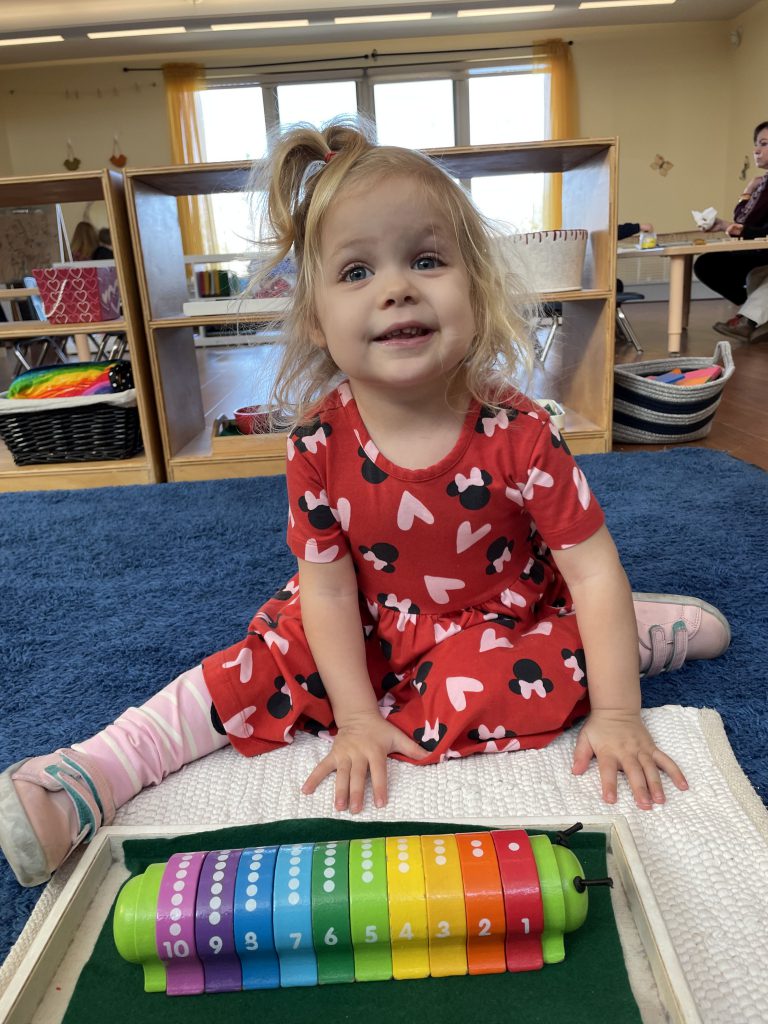
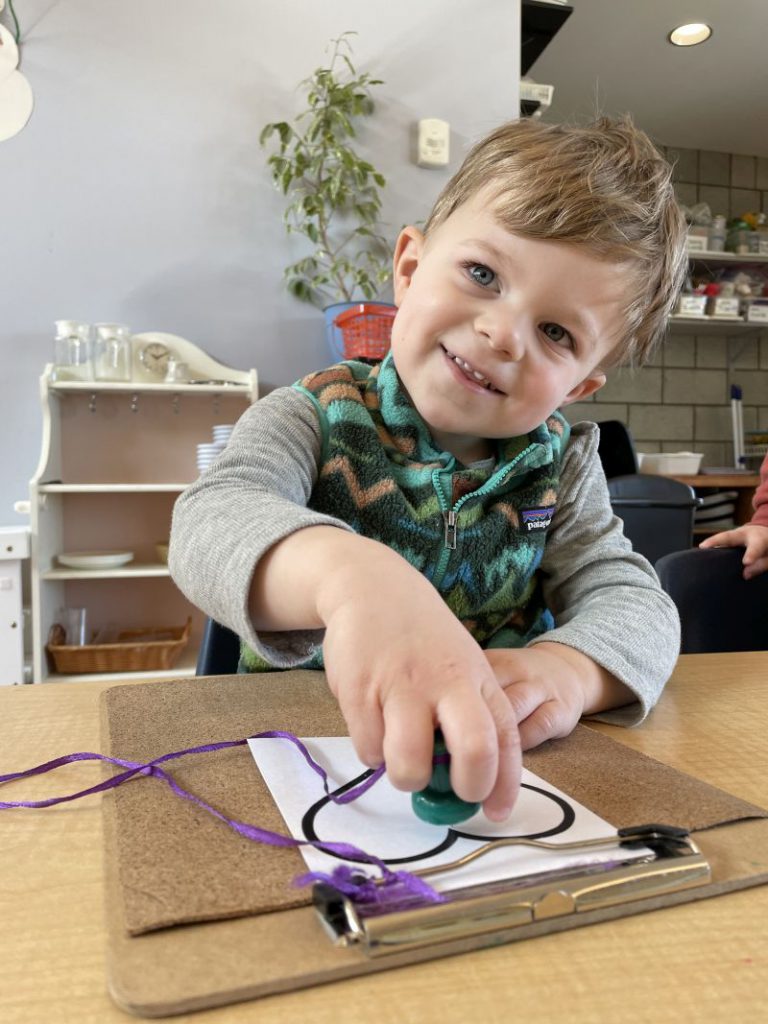
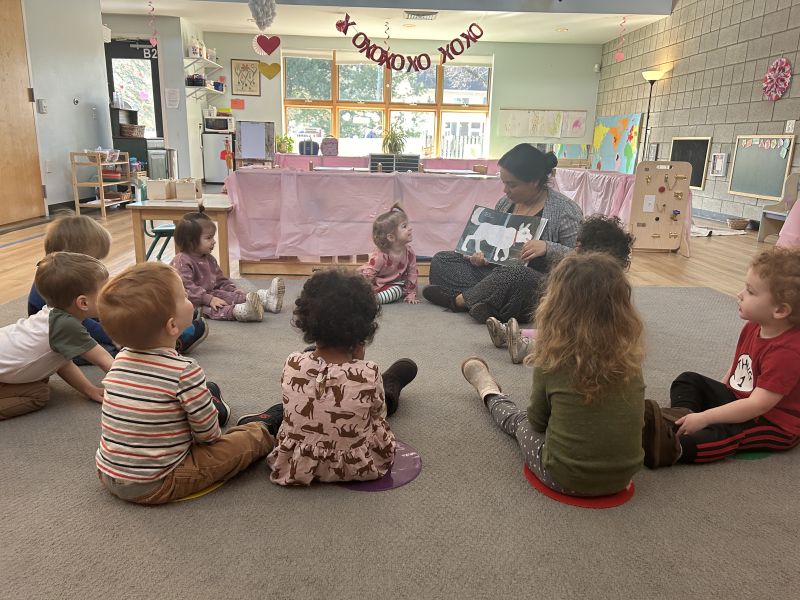
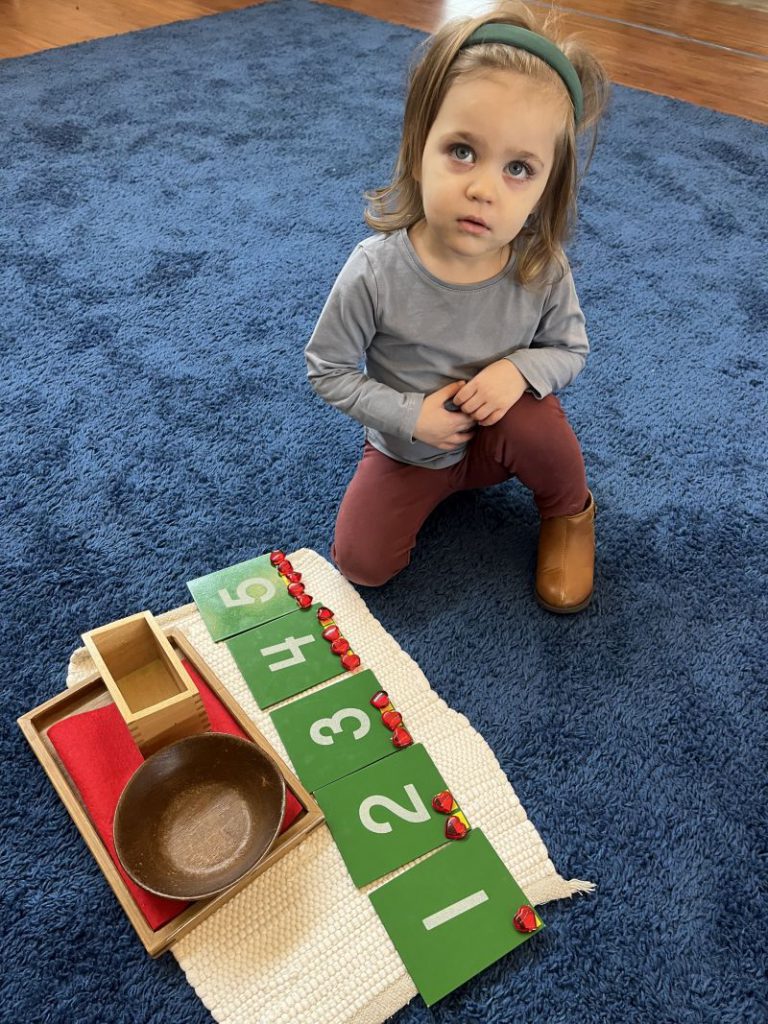
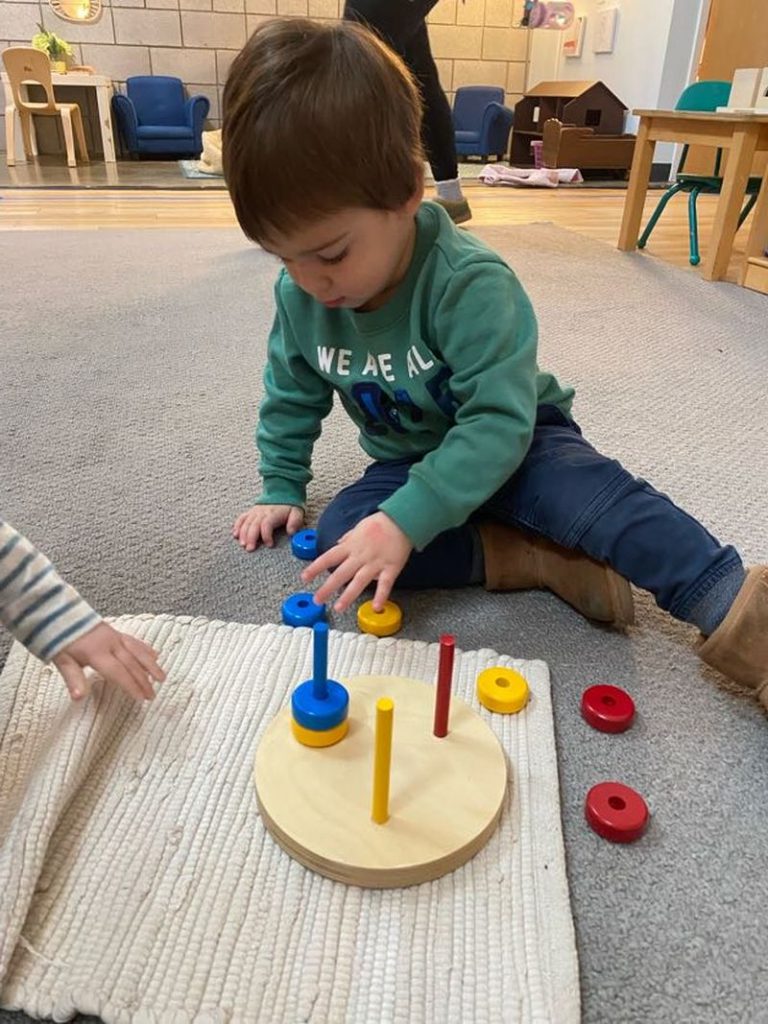
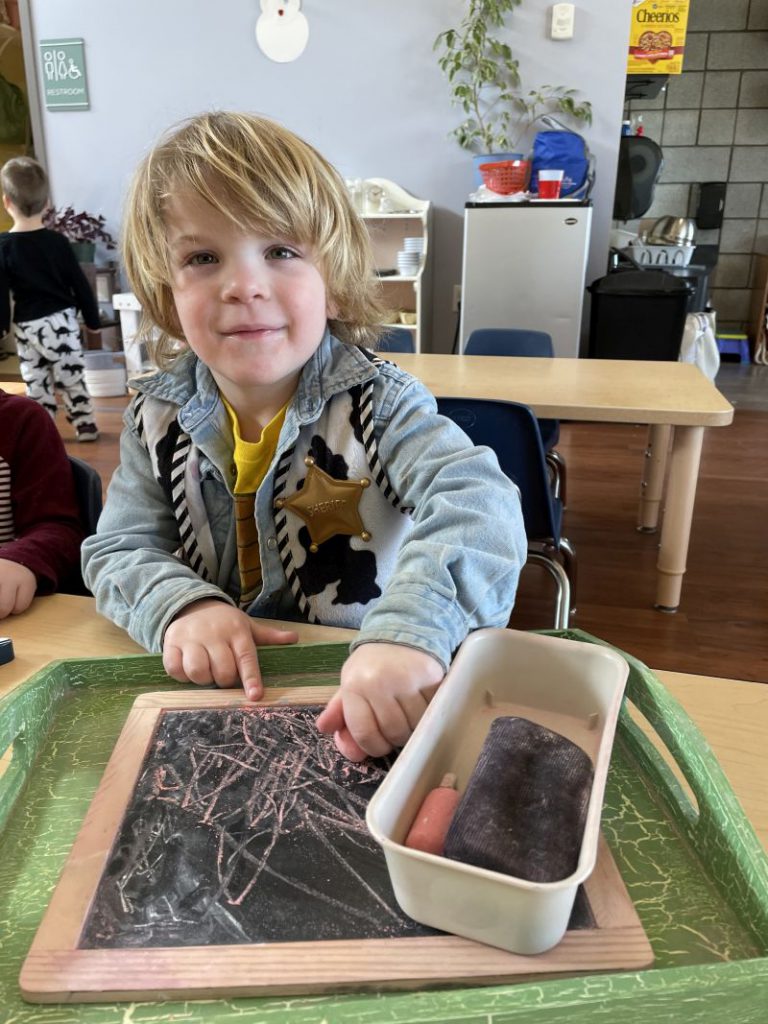
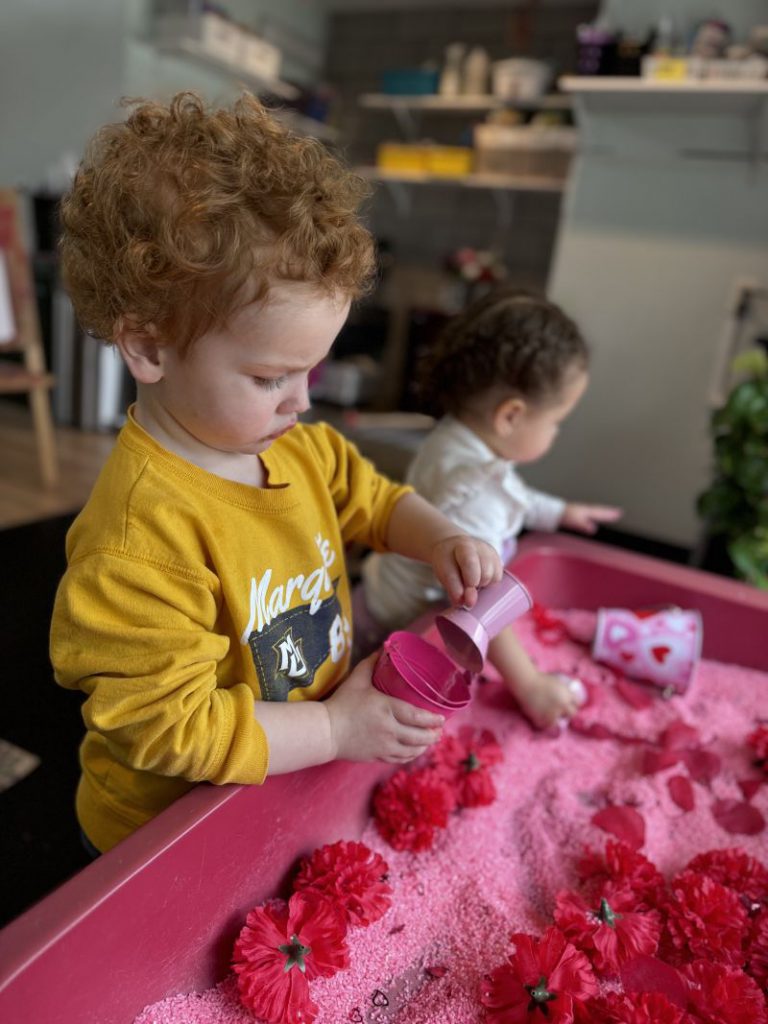
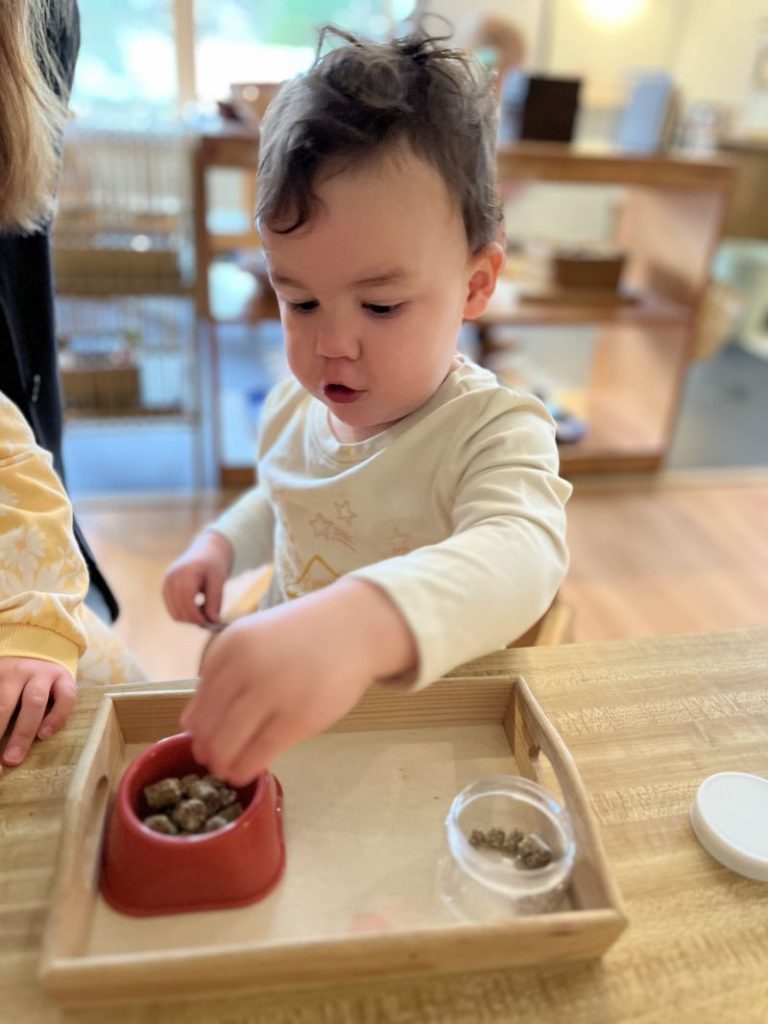
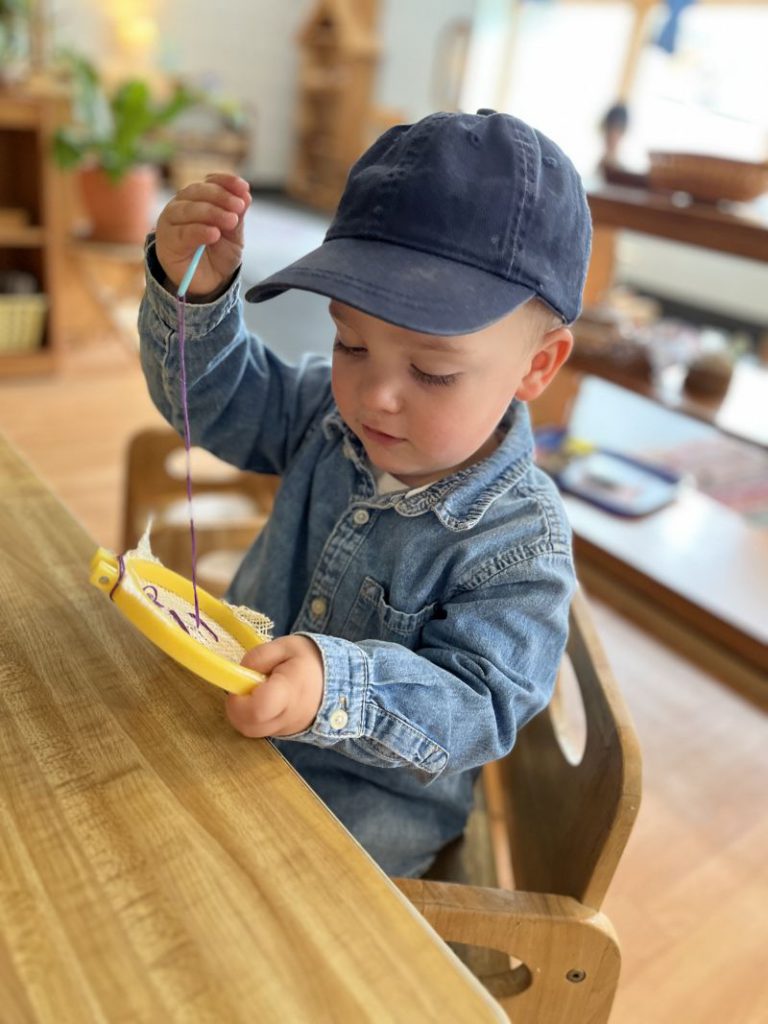
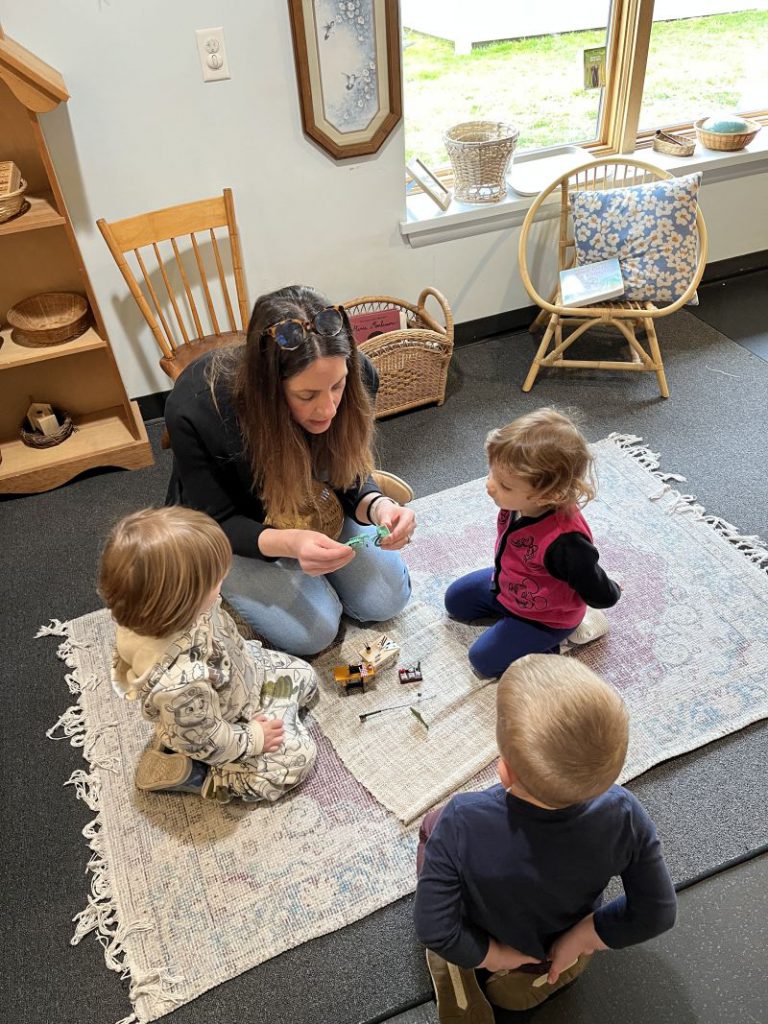
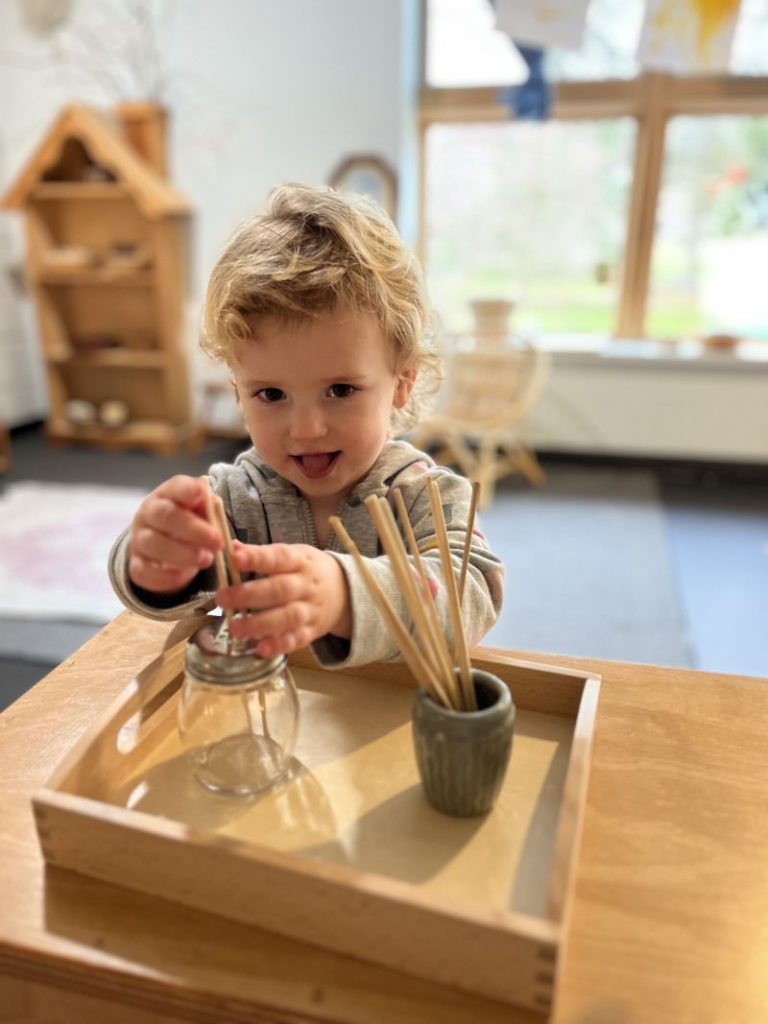
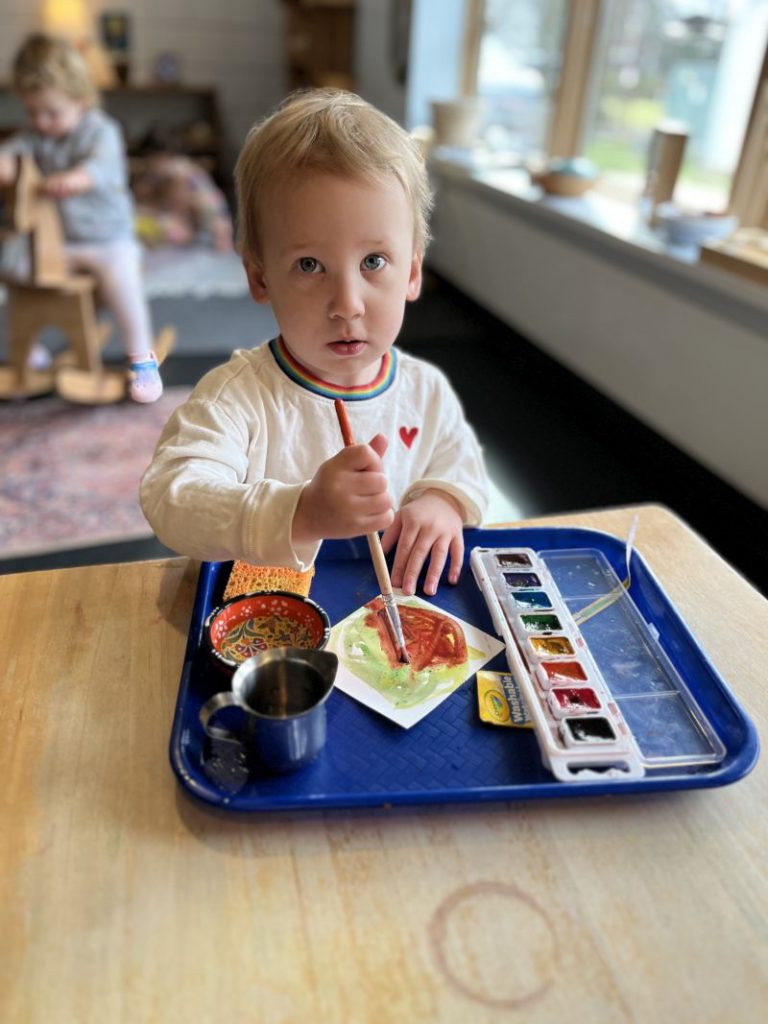
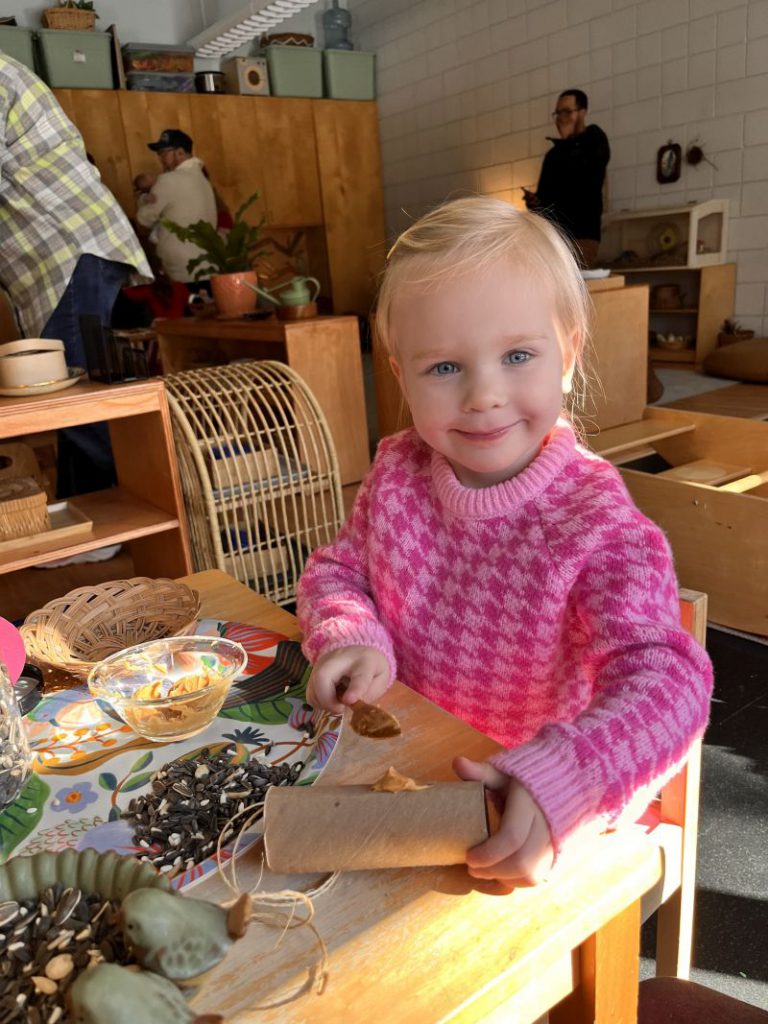
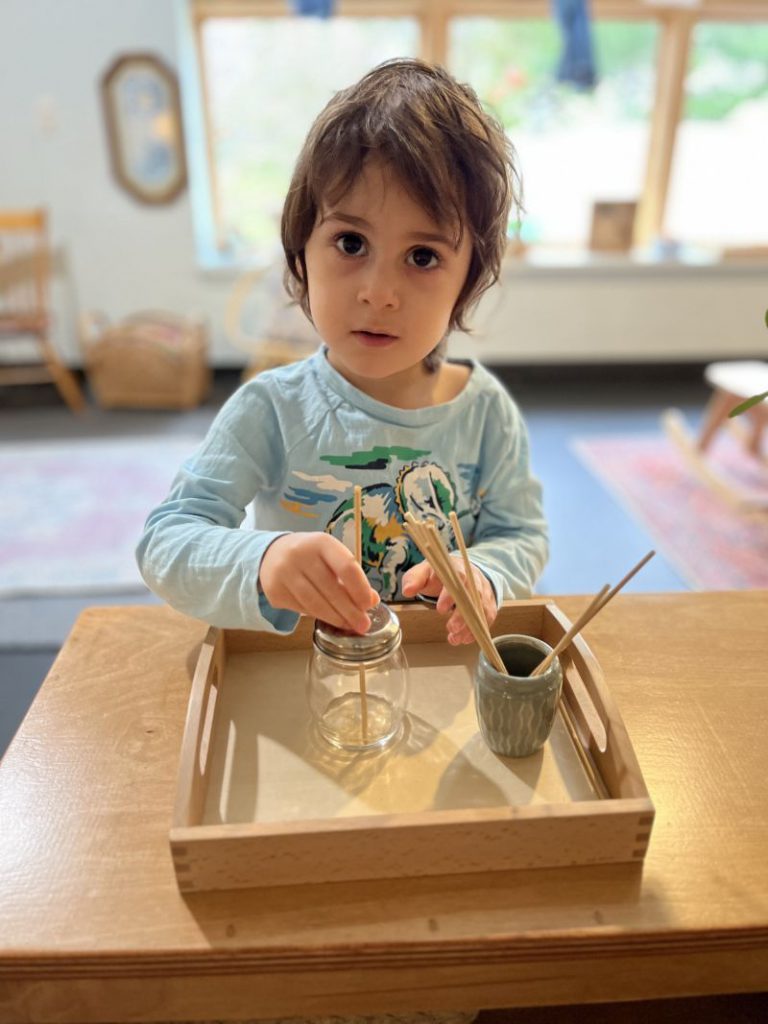
In this child-centered approach the nurturing adult encourages the child’s spontaneous activity, in an environment which is carefully designed and prepared to meet the interests and needs of each child.
Infants and toddlers have freedom to explore in safe environments that provide freedom for unrestricted physical movement and are visually attractive, organized, tidy, clean, and uncluttered. Manipulative materials foster concentration, problem solving, and a sense of achievement and are fully accessible to the children on low, open shelves. The variety of interesting materials combined with the child-sized utensils and furnishings make it possible for children to select and complete activities independently. An essential component is a self-care area where toilet awareness and independence in maintaining personal hygiene is encouraged.
The routines of everyday living are the foundation of Montessori curriculum for both infants and toddlers, and all activities promote the development of order, coordination, concentration, and independence, while nurturing social, emotional, physical, and cognitive growth. Based on daily observations by the teachers, new materials and activities are introduced that meet the needs of individual children and the community as a whole. These activities are designed to allow the child to recognize when a task has been completed successfully, or to correct an error without adult intervention, all the while permitting multiple repetitions of an activity, if desired:
washing, dressing, toileting, and eating according to each child’s individual capacity
cleaning, food preparation and meal time; plant care and animal care, etc.
(indoors and out): walking, stepping, climbing, running, spinning, jumping, balancing, pulling up on bars, climbing steps, carrying heavy objects, etc.
grasping, picking up objects, transferring objects, using tools and utensils, art work, etc.
naming objects, describing actions and intentions, discussing pictures, conversation, visual and auditory perception, music, singing, finger-plays and looking at and reading books with the teachers
developing manners and appropriate social skills through spontaneous interactions throughout the day as well as in adult-led small group games
nature walks when the adults accompany children at their own pace, cultivating the children’s interest and wonder in the natural world, and laying the foundation for a deep respect for nature.
An uninterrupted work period ensures that children have the time to settle into tasks that interest them, and that their concentrated efforts are not interrupted. The daily schedule reserves long, uninterrupted periods of time for spontaneous activity when children are free to choose their own activities. Their independent and spontaneous work is supported by the Montessori educator through thoughtful guidance and engagement and age-appropriate help. Whole group activities, such as outdoor play, group meals, or adult-led story time and singing are scheduled outside this uninterrupted period. Infant and toddler sleep time is according to individual need.
… the child does not want to get anywhere; he just wants to walk, and to help him truly, the adult must follow the child, and not expect him to keep up. The need for following the child is clearly demonstrated here, but indeed it is the rule for all sides of education and in all fields. The child has his own laws of growth, and if we want to help him grow, we must follow him instead of imposing ourselves on him.
-Montessori Maria, To Educate the Human Potential
Credentialed Montessori teachers have completed a highly specialized course of training at the age level and are viewed as facilitators and guides, rather than as teachers who provide direct instruction. Montessori Infant & Toddler credentialed teachers have in-depth knowledge of child development from birth through 3 years of age, and possess an intimate knowledge of Maria Montessori’s philosophy for meeting the needs of this age range. The teacher has an understanding of the specific activities that should be provided to each child based on his or her unique stage of development and observes individual children and the dynamics of the group like an anthropologist. These observations are the basis for careful recording of each child’s activities, behaviors, knowledge, and skills. These records then become a document of the child’s activities and progress. Using these along with developmental checklists, the teacher knows which activities to offer next to each child, and where there may be areas of strength or weakness.
All adults in the environment contribute to making the classroom a peaceful community in which respect for the independence and character of each child is paramount. Adults move slowly, and are consistently calm, gentle, soft-spoken, patient, and trusting. They demonstrate respect and compassion, using eye contact, kneeling to the level of the child, addressing children by name, and speaking before touching or moving them. The classroom environment provides a calm, soothing atmosphere, with consistent caregivers who create an emotional safe haven for those in their care. To cultivate a growth mindset, teachers focus on acknowledging each child’s efforts without using praise or punishment.
Most schools employ classroom assistants who provide support to both teacher and children. The assistant is often trained on the job, though some assistants may have attended training courses or workshops. Sometimes, this position is filled by an intern who is enrolled in a Montessori teacher education program.